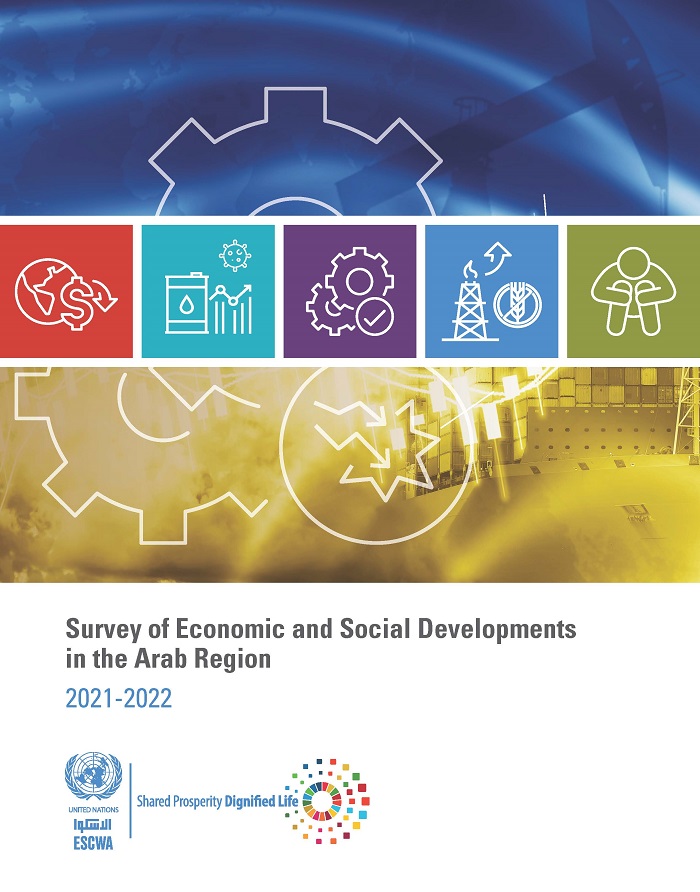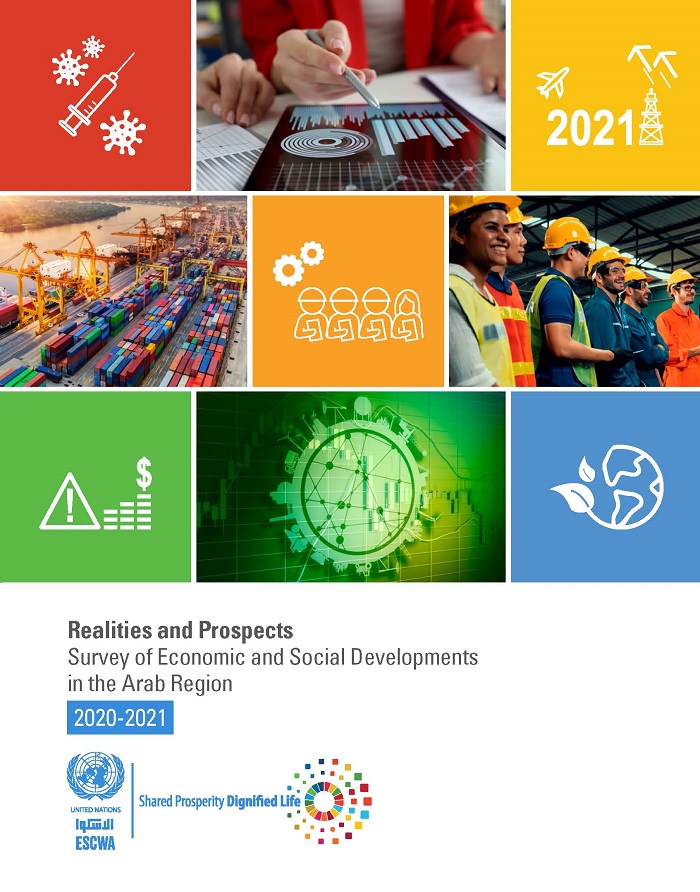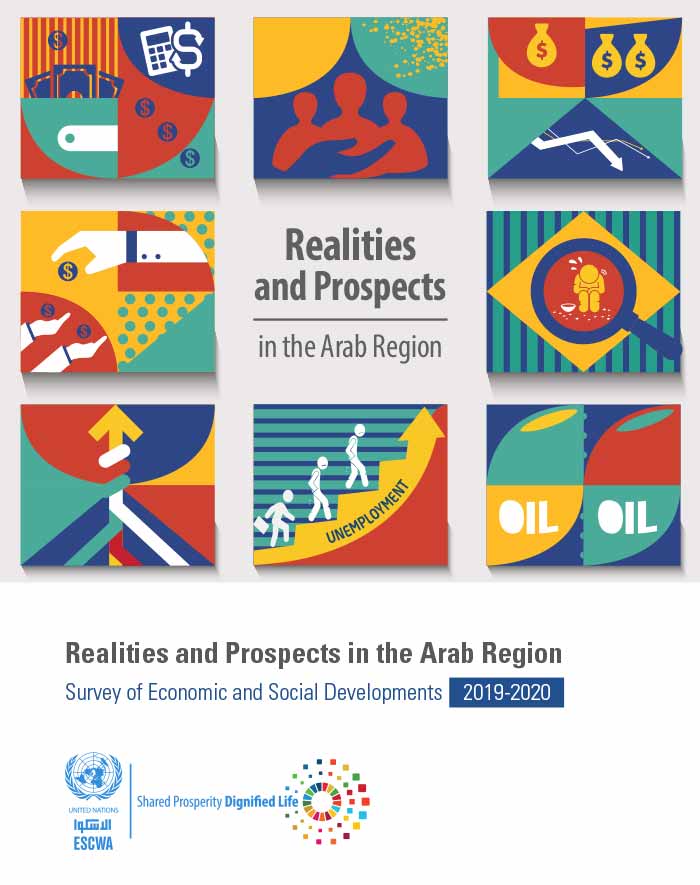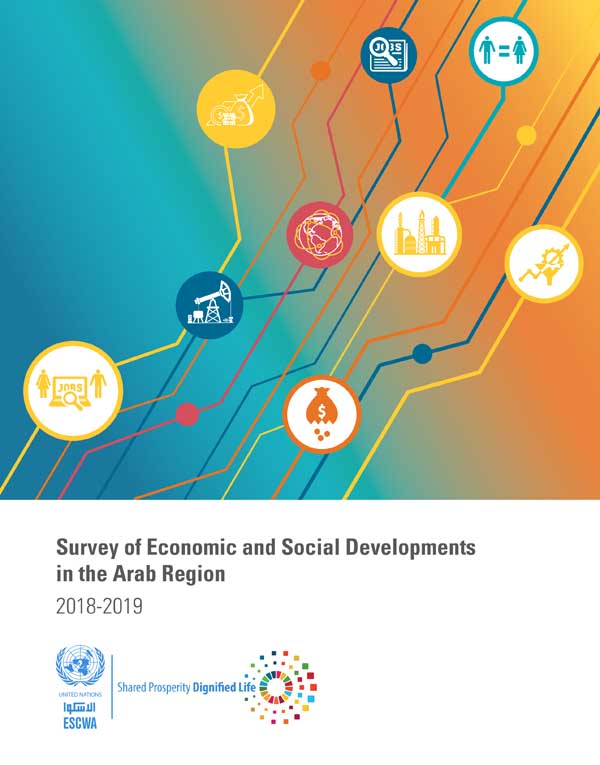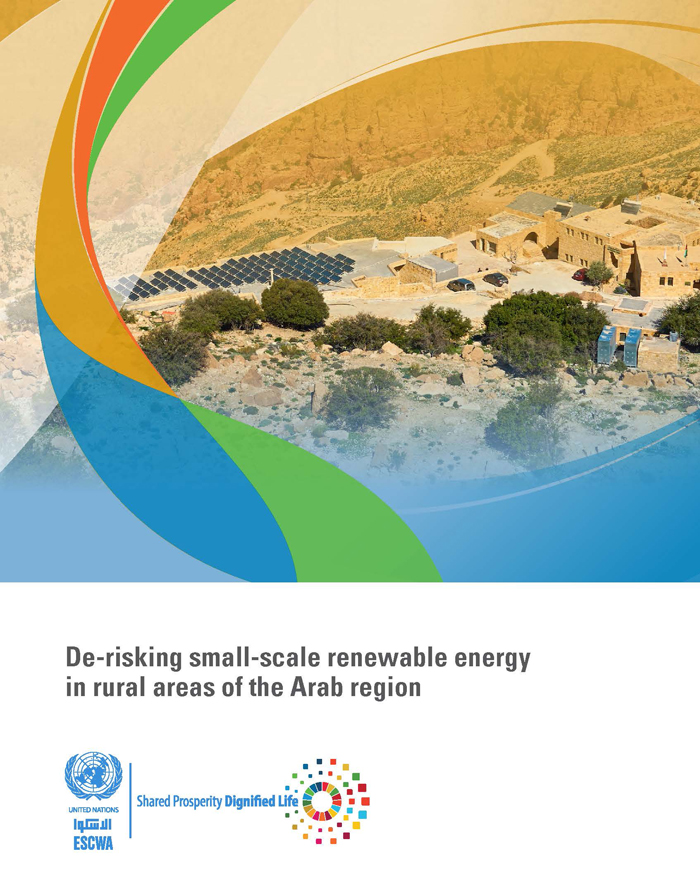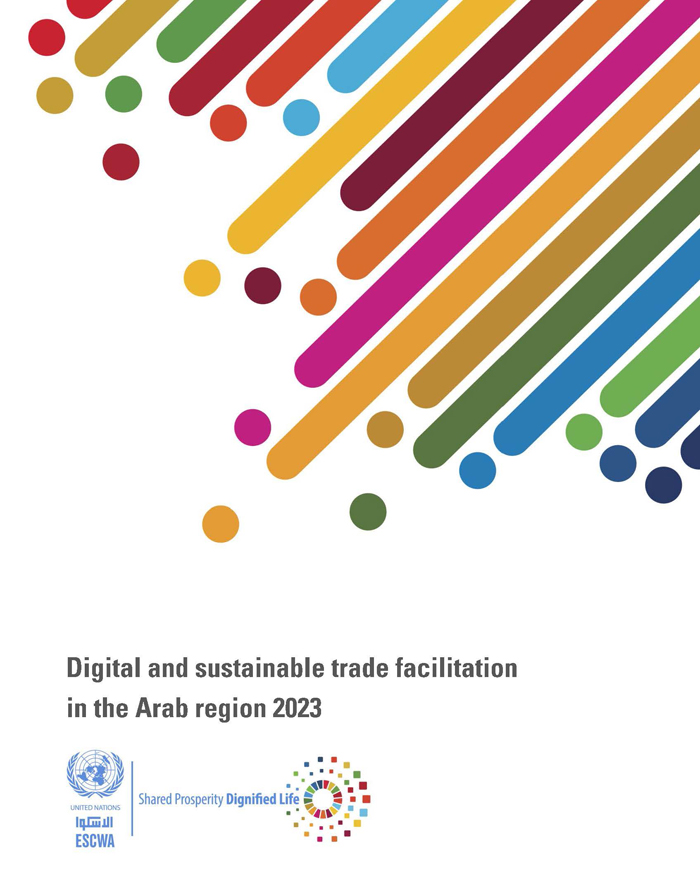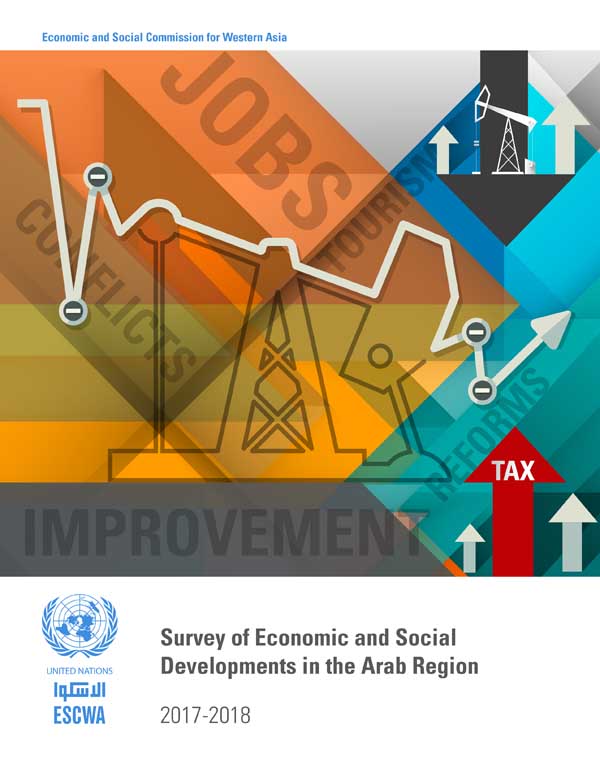
ESCWA Publication: E/ESCWA/EDID/2018/1
Country: Arab region
Publication Type: Flagship publications
Publication Subject: Survey of Economic and Social Developments in the Arab Region
Cluster: Shared Economic Prosperity
Focus Area: Financing for development, Macroeconomics
Initiatives: Economic Statistics and National Accounts
SDGs: Goal 8: Decent Work and Economic Growth
Keywords: Arab countries, Economic development, International monetary situation, Macroeconomics
Survey of Economic and Social Developments in the Arab Region 2017-2018
January 2018
The Arab region continues to manage uncertainties on its path towards an inclusive and sustainable growth trajectory: geopolitical tensions persist, and global interest rates have soared. The moderate recovery in oil prices further complicates the balance between fiscal consolidation, private sector development, diversification and external imbalances. Notwithstanding the daunting challenges ahead for policymakers, stronger economic prospects in Europe will create more opportunities for the region. Reflecting both upside opportunities and downside risks, the Survey of Economic and Social Developments in the Arab Region 2017-2018 shows that regional economic growth is estimated to have slowed to 1.5 per cent in 2017 from 2.8 per cent the year before, but is projected to rebound to 3.3 per cent in 2018 and maintain a similar rate of growth for 2019.
The 2017-2018 survey finds that the region continues to lag behind the rest of the world in gender equality, in spite of remarkable progress recorded in educational attainment for women and ambitious new legislation to reduce discriminatory practices. It also attempts to explore the exchange-rate regime in Arab countries and claims that fixed exchange regimes, despite substantial misalignments, have a better impact on growth in some countries. This counterintuitive result is mainly driven by the high level of uncertainty in the region. Mindful of this, any policy that guarantees a certain predictability for consumers and investors may have a positive effect on growth. Rigid exchange-rate regimes serve as a commitment to low inflation and eliminate exchange-rate risk caused by inappropriate monetary and fiscal policies.
Related content
Financing for development
, Macroeconomics
,
The Arab region continues to manage uncertainties on its path towards an inclusive and sustainable growth trajectory: geopolitical tensions persist, and global interest rates have soared. The moderate recovery in oil prices further complicates the balance between fiscal consolidation, private sector development, diversification and external imbalances. Notwithstanding the daunting challenges ahead for policymakers, stronger economic prospects in Europe will create more opportunities for the region. Reflecting both upside opportunities and downside risks, the Survey of Economic and Social Developments in the Arab Region 2017-2018 shows that regional economic growth is estimated to have slowed to 1.5 per cent in 2017 from 2.8 per cent the year before, but is projected to rebound to 3.3 per cent in 2018 and maintain a similar rate of growth for 2019.
The 2017-2018 survey finds that the region continues to lag behind the rest of the world in gender equality, in spite of remarkable progress recorded in educational attainment for women and ambitious new legislation to reduce discriminatory practices. It also attempts to explore the exchange-rate regime in Arab countries and claims that fixed exchange regimes, despite substantial misalignments, have a better impact on growth in some countries. This counterintuitive result is mainly driven by the high level of uncertainty in the region. Mindful of this, any policy that guarantees a certain predictability for consumers and investors may have a positive effect on growth. Rigid exchange-rate regimes serve as a commitment to low inflation and eliminate exchange-rate risk caused by inappropriate monetary and fiscal policies.
